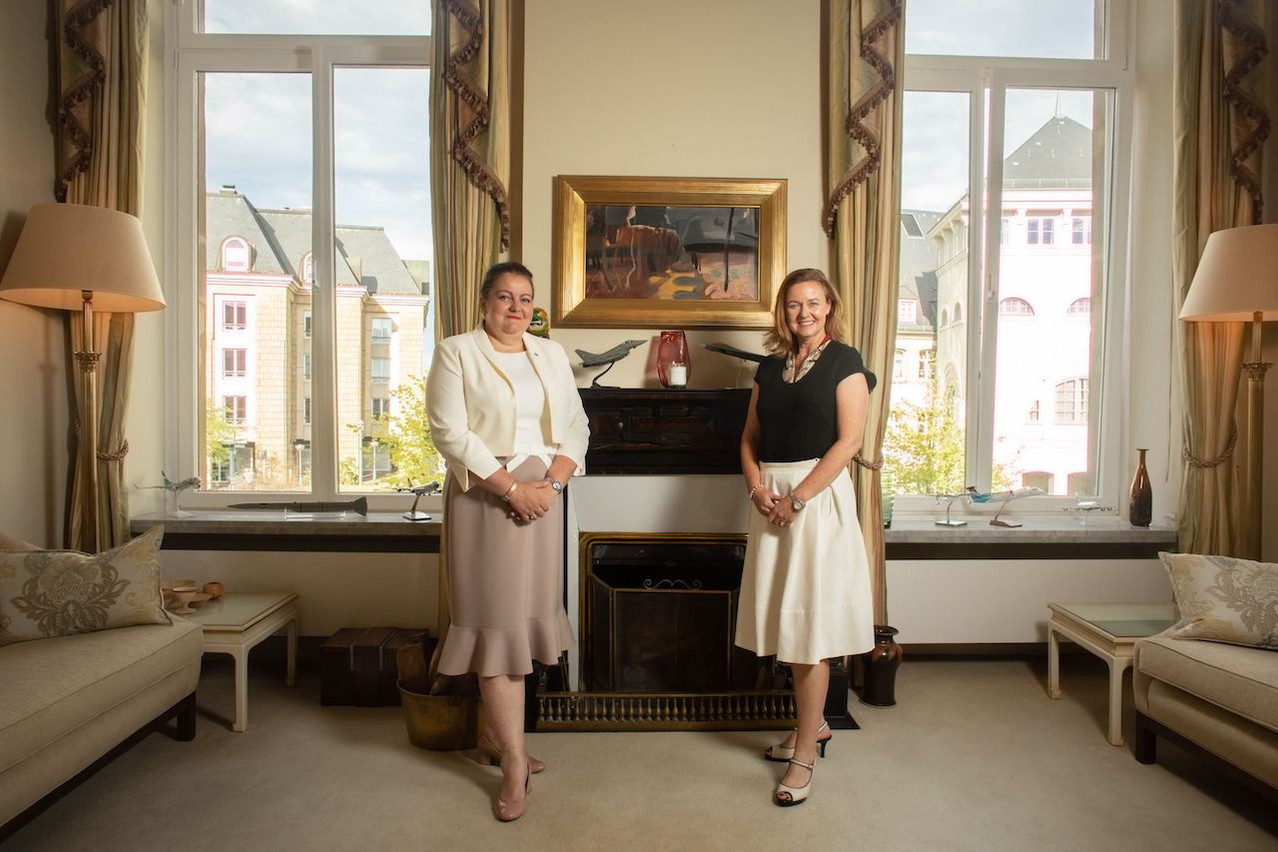British ambassador to Luxembourg Fleur Thomas on Wednesday evening hosted a reception for over 50 representatives of UK companies that manufacture and supply military capability. One of the most important guests at the reception was Stacy Cummings, the general manager of the Nato Support and Procurement Agency (NSPA) based in Capellen, which on Thursday was hosting one of its national Industry Days, allowing companies to learn more detail about NSPA’s procurement processes, rules and regulations and to discuss potential opportunities for cooperation in life cycle management, in-service support and support of operations.
“It gives us an opportunity to let industry know what are the areas we foresee in the future as being important to us,” Cummings says in an interview just before the reception. “It [also] gives industry an opportunity to tell us what they're working on, what are some of their more innovative and emerging technologies, and also give us feedback on how they would like us to engage with them.”
Best capability at best price
NSPA hosts several of these so-called Industry Days every year, some focused on a particular Nato country, others on a specific capability. “Last year we had an Industry Day focused on the next generation of rotorcraft,” says Cummings. “We look to the future to having Industry Days around things like infrastructure.” Coupled with the national focus events, the Industry Days “get to the core” of what NSPA wants to do, Cummings explains. “Which is to have access to the best possible industry, and to run competitions, so we can make the best capability and the best price.”
The 35 UK companies in Luxembourg this week are really diverse, says British ambassador Fleur Thomas. They include world-leading names like missile systems designer MBDA, engine power company Rolls-Royce and engineering services firm Jacobs. “But it goes right down to Survitec who do things like survival equipment, and inflatable lifeboats and, close to my heart, Jankel, who do armour plating of vehicles and are based in a village near to where I live in West Sussex.”
The UK has gained over £410 million worth of contracts through NSPA since 2017
In addition to the Industry Days, NSPA has also hosted webinars with potential suppliers, some with up to 200 participants. “They have a low administrative burden and allows us to get information out quickly and in a repeatable fashion,” says Cummings.
This week’s event is the sixth Industry Day with the UK, which is one of the few countries that has consistently met the Nato members’ Wales pledge from 2014 to move defence spending to 2% of gross domestic product. “The UK has gained over £410m worth of contracts through NSPA since 2017. So, the numbers are big and worthwhile,” says Thomas, who was at the ministry of defence as the head of exports for UK Defence prior to taking up her role in Luxembourg.
We feel strongly at NSPA that we have a role to play in alternative energy, in disposal and recycling
With plenty of talk over the past 18 months or so revolving around the “greening” of defence, Cummings also emphasises NSPA’s aims to contribute to the fight against climate change. “One of the tenants of Nato 2030 is around climate and climate change. We feel strongly at NSPA that we have a role to play in alternative energy, in disposal and recycling. We want to be the agency that that our customers look to when they think about energy efficiency or alternative energy sources that can help not just reduce the impact that we have on climate, but also our operational footprint.”
Thomas, who last year hosted a visit by the UK ministry of defence's director of climate change, says that as chair of Cop26 the impact on the environment of military procurement and operations was also important. She cites as an example, a company that she talked with recently that is developing a potential to recycle Kevlar. “I’ve certainly met with a few companies talking about innovative technologies, which might be of interest, not just to Luxembourg’s armed forces, but also widely across the EU or across Nato.”


